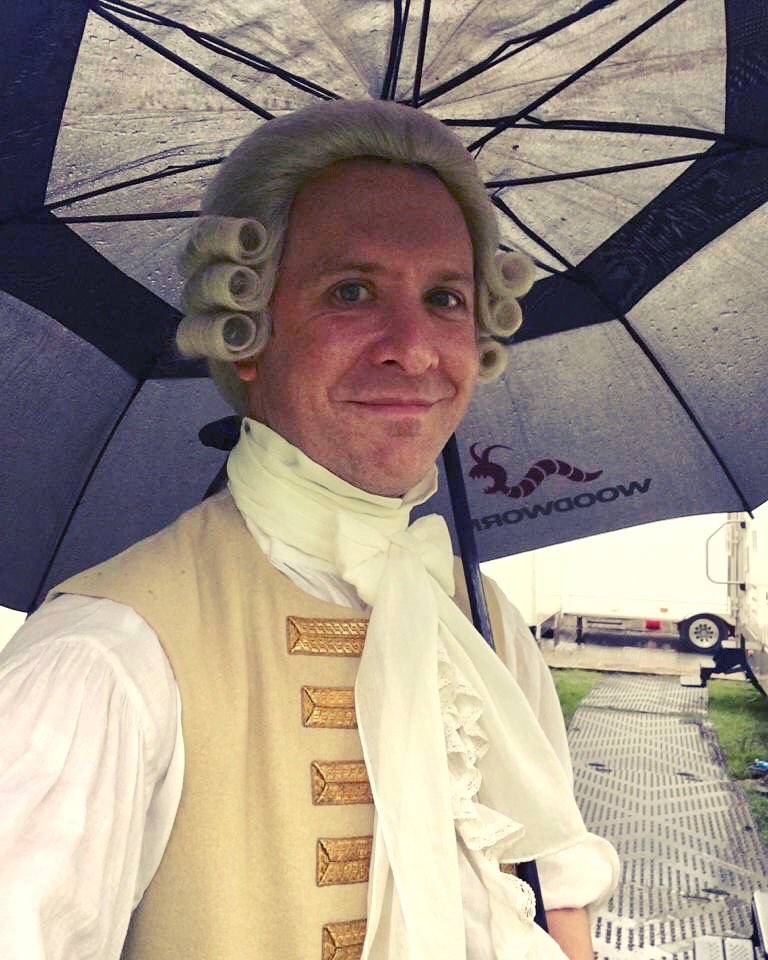

I draw a lot, recently – from where I grew up. You’re also a writer! Where do you draw your inspirations, where does it begin? I’m equally as guilty of having a stiff upper-lip “it’s all right dear, don’t create a fuss!” where one should probably say “this is outrageous!” But I like that. But in equal measures it frustrates the hell out of me… but I love it. It’s creative, it has humour and its view on the world is very unique. We are not world leaders anymore but we are on the periphery. We have a transient view of the world and we as people are like that. Americans don’t really have that, but we really do have that – because we have ruled the world, lost it, got it all and lost it again. We have an air of being self-deprecating and self-analytical. Every writer has the weight of Shakespeare or Chaucer, like every actor has the weight of some of the greatest actors there have ever been, like Olivier or Daniel Day Lewis, it’s all in your world. It has a weight of history and we all have that in us. It has its own unique placing, this country is a very old country. Having worked in some major British creations such as Peep Show and Paddington, though very different – what do you think it is about British Film and Television that draws in an international audience? That’s one thing comedy teaches you, to be open and not be fearful. You can find a really good track to go on and decide to go with that. You have to let it be as loose as you can, with your actors and directors you can agree that’s the way. Sometimes if you force it, it never quite gels. Play around with it, see where it sits and where it wants to be. Yeah, that’s the kind of creative process for me. There are others which have to be moulded and found. There are some scenes where you’re like – I know what I want to do with this, I know what this is. It’s finding those little bits, there’s little bits of ridiculousness in all of us and you kind of find that and push that through the writing and create something out of it. I think it’s tapping into who you are and drawing that out depending on what the part its.

Playing the scene, rather than playing the event.Īs an actor, how do you create your footprint and make sure it’s you being noticed and recognised? Making a scene as good as it possibly can get. We were just two actors playing a scene, that grounds you. You do it a couple of times, we did a comedy improv. Then you’re sitting and waiting and waiting in the middle of the desert and then it’s suddenly “Quick! Get on set!” and there’s this huge sprawl amongst loads of tanks and suddenly Brad Pitt is there and you’ve got to do this scene. On my first day I was doing a scene with Brad Pitt and the build-up it to it was very nerve-wracking “Have you met Brad?”, No, I haven’t met Brad… “Oh, you’ll meet Brad”. The one I got most nervous about was when I did War Machine. Having worked with the likes of Colin Firth and Rachel Weisz in The Mercy, do you ever feel nervous when presenting your own acting style? The actor and writer from Hertfordshire tells us where he thinks Britain stands in the world of film and television and where all his writing inspiration comes from. NUIT sits down with Tim Downie to discuss his latest project War Machine where he acts alongside Brad Pitt.


 0 kommentar(er)
0 kommentar(er)
